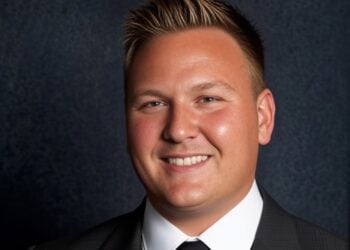After a serious injury or accident, plaintiff and defense attorneys often need a life care planner (or consultant) to assess medical, psychosocial and vocational needs to develop a plan and budget for use in litigation.
North Carolina-based Julie Sawyer-Little is a licensed occupational therapist and certified life care planner who has provided litigation support since 1998. She has extensive training and education in understanding the medical, psychosocial and vocational aspects of numerous disabilities.
Sawyer-Little is in her second term as the director of education with the International Association of Rehabilitation Professionals. She is a contributing editor for Attorney at Law Magazine.
AALM: What is your role during litigation?
JSL: I am a certified life care planner and vocational rehabilitation expert in North Carolina and South Carolina. I provide not only vocational assessments but also earning capacity, employability, catastrophic life care plans, and cost analysis. I review life care plans, medical cost projections, vocational assessment, and earning capacity opinions submitted by opposing counsel and I assist with the analysis for a rebuttal plan.
AALM: What kinds of accidents or injuries do you consult on?
JSL: It’s a pretty broad array. It includes spinal cord injury, traumatic brain injury, amputation, pediatric disabilities and injuries, as well as orthopedic injuries and chronic pain.
AALM: Give me an example of what might be in a life care plan and vocational assessment?
JSL: A life care plan is a document which provides an outline of ongoing future medical needs (and related costs) of the injured individual. Examples of these could include medical treatment, therapy (i.e., physical, occupational or speech therapy), medications, equipment, accessible housing, attendant care, etc. As a vocational expert, I will assess the individual’s capacity to return to work and earn a wage. This process will often include vocational testing, transferable skills analysis, and an outline of alternative employment options.
AALM: What kinds of attorneys bring you in as a consultant or retained expert?
JSL: The referrals I receive are from both plaintiff and defense attorneys seeking consultation in the areas of personal injury medical malpractice, workers’ compensation, family law, and product liability. In these cases, my role is typically, either as a consultant or disclosed expert. These roles have some similarities, in that they involve a review of the relevant medical records, available evidence, and analysis of the case. As a disclosed expert, I would ideally have access to interview the individual (typically the plaintiff). If possible, I would consult and collaborate with the treating providers.
It may be important to consult with other identified experts in the case to assist in developing opinions. I can provide guidance and information on case strategy, case analysis, and potential challenges to the case. Because of my passion for ongoing learning and education, I strive to provide clear and effective information to the relevant parties which not only include the attorneys on the case but also to the judge presiding over the case and the jury.
AALM: I’m sure not every case is serious enough to warrant retaining you. How should an attorney decide if they need to have a life care plan or vocational assessment?
JSL: Over the past 26 years, I have become increasingly aware of the challenges attorneys face in utilizing vocational and life care planning experts. A major challenge for attorneys is deciding on the value/cost benefit of a vocational expert, life care planner, or case consultant for their case. These are some of the considerations:
Is the individual continuing to receive ongoing medical care? Has an expert report been submitted which requires further analysis and critique? Are there areas of this case in which I need clarification and/or further support and understanding? Is there a claim for wage loss and/or vocational capacity? Would having an expert assist me in further defining the damages of the case and preparing for depositions/trials of opposing experts? Are the damages in the case supported and reasonable given the facts of the case? Has the individual been absent from the workforce and may benefit from a vocational assessment to develop an organized plan to return to work?








